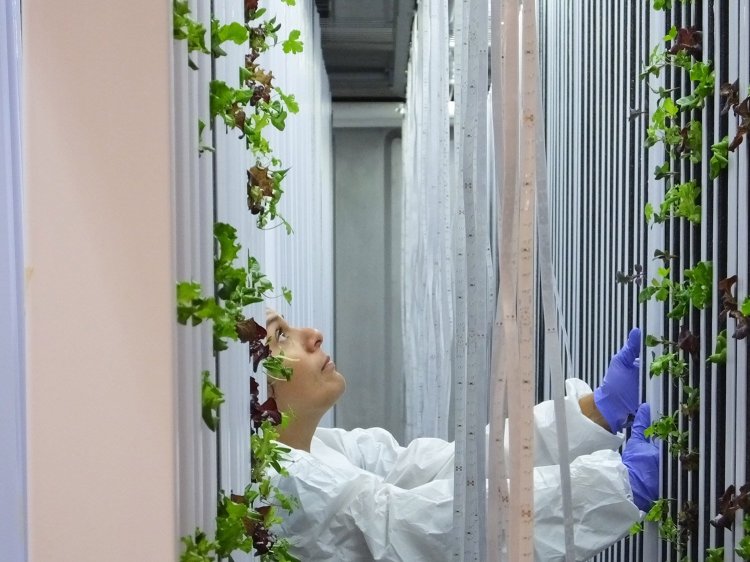An institute dedicated to developing Maine’s food and beverage industry while improving food security for its citizens was launched Thursday at Saint Joseph’s College.
Officials from federal, state and local governments attended the ceremonial unveiling of the college’s Institute for Local Food Systems Innovation, a strategic partnership among various levels of government, as well as corporations and individuals. To help the institute launch, a nearly $2 million grant from the U.S. Economic Development Administration was presented.
In addition, private donations of $500,000 from the Hannaford Charitable Foundation, a $750,000 award from Organic Nutrition Inc. and donations from several private foundations and individuals, collectively, match the federal grant.
“The institute will fill key needs to strengthen our food system and grow our economy in Maine. … The institute will support the creation of new jobs and a strengthened economy, which is perfectly in line with Greater Portland region’s goals of doubling the region’s food manufacturing employment in 10 years,” said U.S. Rep. Chellie Pingree, D-1st District, on behalf of Maine’s congressional delegation, in announcing the EDA grant.
The $4 million in funding will allow the Standish college to begin the first phase of its development: construction of a quarter-acre hydroponic greenhouse, a 3,400-square-foot commercial kitchen, a livestock barn, connection to the municipal water system, and a biomass boiler system, according to a statement from the college. The institute will encompass five enterprises: a food manufacturing incubator, a hydroponic farm, a traditional crop and livestock farm, an agritourism event center, and an entrepreneurship development and education program offering certificates in areas such as hydroponic farming, food processing and food merchandising.
An economic impact analysis conducted by 45 North Research projected the institute to result in $4.1 million in earnings and 135 jobs during construction and operation. According to the report, the food incubator will have the largest long-term economic impact as it helps home-based food businesses scale up operations.
Plans call for the college to break ground for the hydroponic greenhouse in 2018, and the first certificate programs related to hydroponic food production are expected in the fall of that year.
Send questions/comments to the editors.



Comments are no longer available on this story